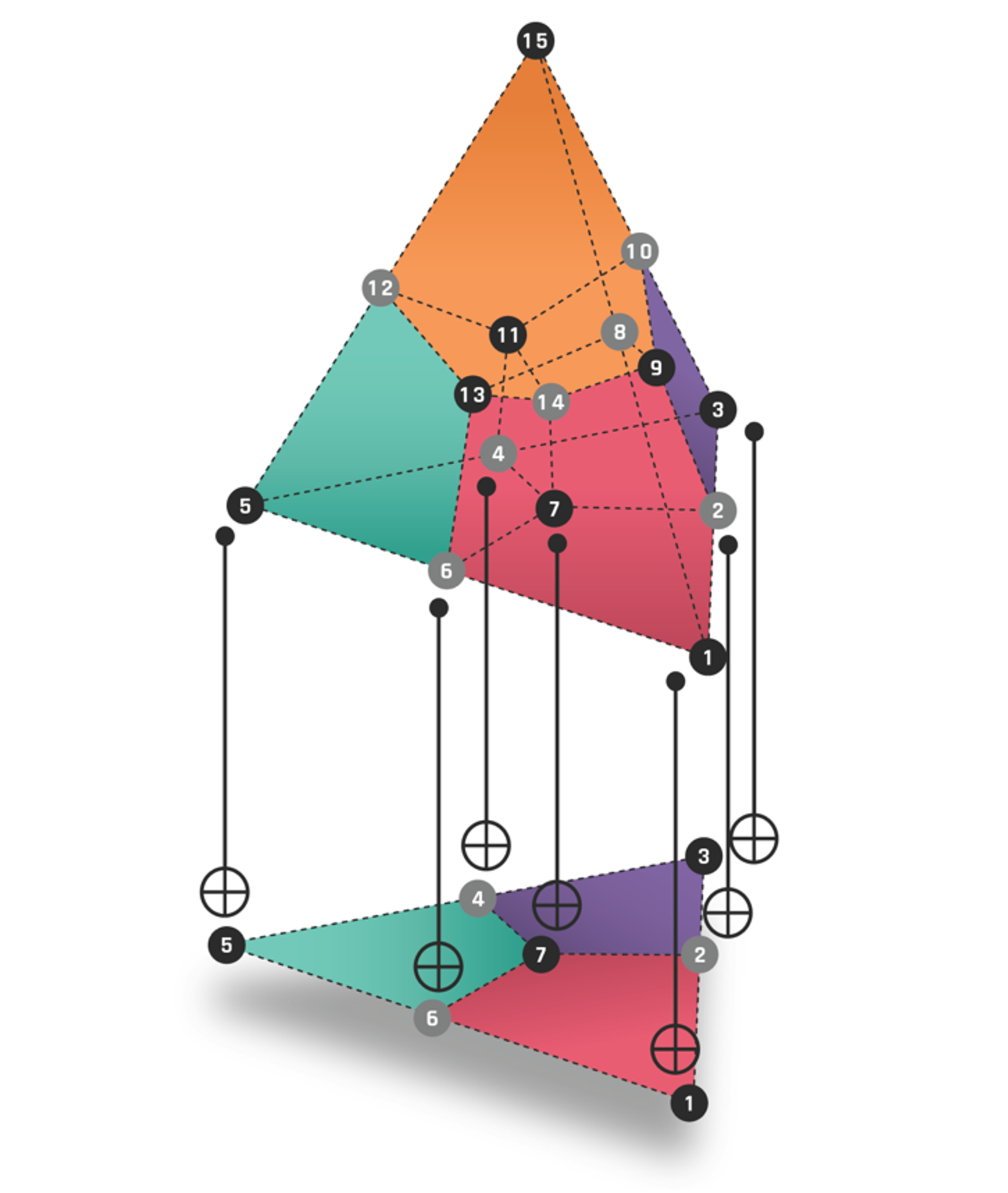, we've made a major breakthrough in one of quantum computing‚Äôs most elusive promises: simulating the physics of superconductors. A deeper understanding of superconductivity would have an enormous impact: greater insight could pave the way to real-world advances, like phone batteries that last for months, ‚Äúlossless‚Äù power grids that drastically reduce your bills, or MRI machines that are widely available and cheap to use. ¬ÝThe development of room-temperature superconductors would transform the global economy.
A key promise of quantum computing is that it has a natural advantage when studying inherently quantum systems, like superconductors. In many ways, it is precisely the deeply ‘quantum’ nature of superconductivity that makes it both so transformative and so notoriously difficult to study.
Now, we are pleased to report that we just got a lot closer to that ultimate dream.
Making the impossible possible
To study something like a superconductor with a quantum computer, you need to first “encode” the elements of the system you want to study onto the qubits – in other words, you want to translate the essential features of your material onto the states and gates you will run on the computer.
For superconductors in particular, you want to encode the behavior of particles known as “fermions” (like the familiar electron). Naively simulating fermions using qubits will result in garbage data, because qubits alone lack the key properties that make a fermion so unique.
Until recently, scientists used something called the ‚ÄúJordan-Wigner‚Äù encoding to properly map fermions onto qubits. People have argued that the Jordan-Wigner encoding is one of the main reasons fermionic simulations have not progressed beyond simple one-dimensional chain geometries: it requires too many gates as the system size grows. ¬Ý
Even worse, the Jordan-Wigner encoding has the nasty property that it is, in a sense, maximally non-fault-tolerant: one error occurring anywhere in the system affects the whole state, which generally leads to an exponential overhead in the number of shots required. Due to this, until now, simulating relevant systems at scale – one of the big promises of quantum computing – has remained a daunting challenge.
Theorists have addressed the issues of the Jordan-Wigner encoding and have suggested alternative fermionic encodings. In practice, however, the circuits created from these alternative encodings come with large overheads and have so far not been practically useful.
We are happy to report that our team developed a new way to compile one of the new, alternative, encodings that dramatically improves both efficiency and accuracy, overcoming the limitations of older approaches. Their new compilation scheme is the most efficient yet, slashing the cost of simulating fermionic hopping by an impressive 42%. On top of that, the team also introduced new, targeted error mitigation techniques that ensure even larger systems can be simulated with far fewer computational "shots"—a critical advantage in quantum computing.
Using their innovative methods, the team was able to simulate the Fermi-Hubbard model—a cornerstone of condensed matter physics— at a previously unattainable scale. By encoding 36 fermionic modes into 48 physical qubits on System Model H2, they achieved the largest quantum simulation of this model to date.
This marks an important milestone in quantum computing: it demonstrates that large-scale simulations of complex quantum systems, like superconductors, are now within reach.
Unlocking the Quantum Age, One Breakthrough at a Time
This breakthrough doesn’t just show how we can push the boundaries of what quantum computers can do; it brings one of the most exciting use cases of quantum computing much closer to reality. With this new approach, scientists can soon begin to simulate materials and systems that were once thought too complex for the most powerful classical computers alone. And in doing so, they’ve unlocked a path to potentially solving one of the most exciting and valuable problems in science and technology: understanding and harnessing the power of superconductivity.
The future of quantum computing—and with it, the future of energy, electronics, and beyond—just got a lot more exciting.



